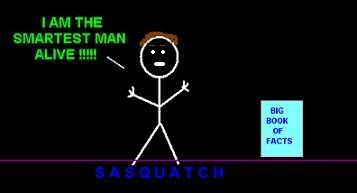Kind of old news, actually...
In more than one of my theology courses in college, professors have talked about the flexibility of the translation. Also worth investigating is the fact that all of the rest of creation after that first line is not Elohim creating things but simply manipulating the existence. He separates the light from the dark in what is often depicted as this cloudy vortex to create day/night, he calls animals forth, etc.
But don't think any war of interpretation is so new. Modern religions were built out of wars of interpretation, and just like some young scholar right now has to prove God wasn't a creator, St. Augustine had to work to prove almost 1500 years ago that God did do the whole
creatio ex nihilo. It was an encapsulation of an active debate that began in 100s.
So it took about 300 or so years for the then Catholic church to lock in that God was a creator god. (And Jews independently codified to that decision as well beginning a bit before them and ending a bit after as far as we can tell). We mainly only have the arguments at present day that consider YHWH as some sort of ABSOLUTE god because both Christianity and Judaism preserve texts that they believe are correct and let the losing side of an argument slip away in time (or, in the Christians case: Actively destroy texts describing the losing side of an argument). But these folks wouldn't have been arguing so damn
hard unless there was significant opposition in their time arguing against the creation reading of the gospel.
But to these scholars, it seemed just like it was a more "logical" god (whatever that means), and it made more sense to misread Genesis than to have a god who
wasn't the ultimate power in the universe.
____________
And that's important here. Scriptural authority is a relatively new thing, beginning with the protestant reformation and only getting serious with the Calvinists.
It would have been okay up until the last 500 years (Martin Luther, basically) for the Church's description of something and the actual religious text to be at odds. Who the hell cared: No common believer is going to read the actual bible anyways. And even most of the educated class wasn't going to be reading it in Hebrew/Greek, but in Latin. In Judaism, Talmud controlled interpretation, in Catholicism, Church Doctrine controlled interpretation.
But then all of those back-to-the-text religions forced people into a conundrum: Either you dump the belief, or you actually teach people to misread a word.
So over the last 500 years, rabbis and priests have to lean over the Hebrew student's shoulder when they read the first phrase and helpfully coach them: "Well, that word is actually kind of flexible: I know it looks like separation, but here it means..." when maybe it's not.
____________
Anyways, long winded explanation to say that none of this is new, and all of this is active. This scholar's work is not about beginning something, but about adding weight to one side of what has been a very active debate.
If God can't create out of nothing, then we shouldn't angrily accuse our researchers of creating
ex nihilo either...
Further reading:
St. Augustine:
http://en.wikipedia.org/wiki/Confessions_(St._Augustine)
- Argues that before creation, there was no such thing as time/existence.
Philo:
Philo - Wikipedia, the free encyclopedia
- I actually never read any Philo. I only know
of him.
History of the Debate:
Ex nihilo - Wikipedia, the free encyclopedia
- They talk about importing Greek philosophy into the Judaism and early Christianity.
Aquinas:
Summa Theologica - Wikipedia, the free encyclopedia
- Kinda the highest example of exploration of things beyond what the text directly says. Aquinas basically goes through all of Catholic doctrine with minimal use of gospel texts and mainly by logical PROOF. Hardcore to consider, pretty exhausting to read.
Hope this opens up the conversation some.






 Reply With Quote
Reply With Quote











 I don't care.
I don't care.









Bookmarks